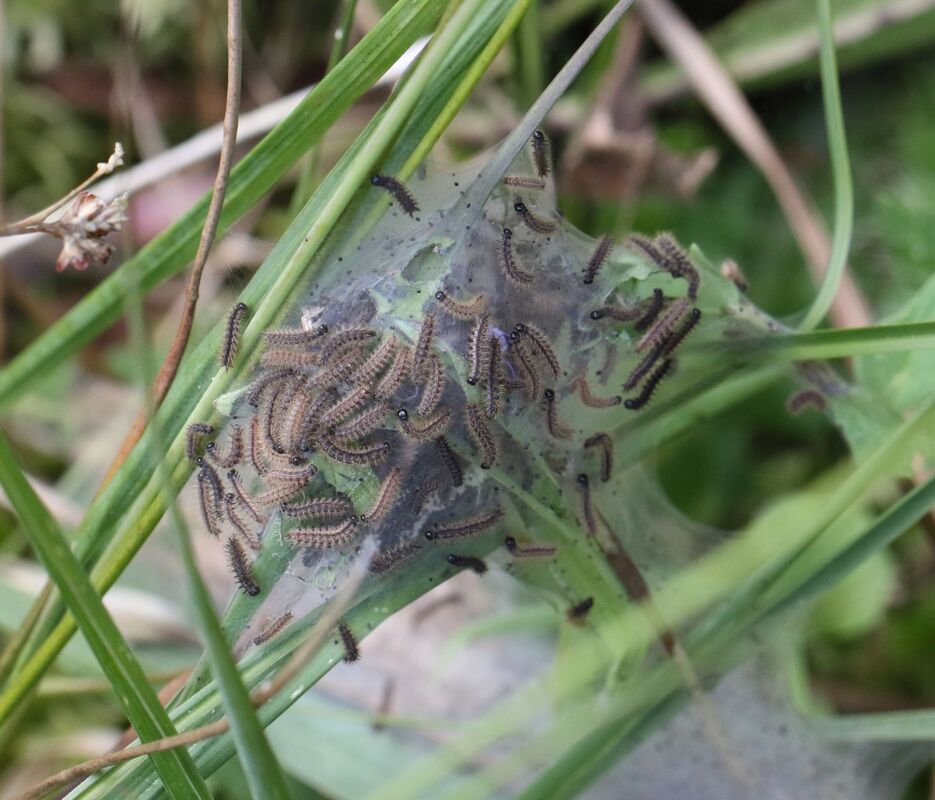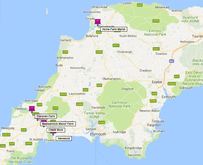returning the marsh fritillary to chark moor
The Marsh Fritillary is one of Europe's rarest butterflies and the last verified sighting at Chark Moor was in 1997. The Gaia Trust, with help from Natural England, Cornwall Butterfly Conservation and others is managing Chark Moor to try to bring this beautiful species back.
The butterfly is essentially a species of wet, unimproved grasland, a habitat that has declined massively in the UK through agricultural 'improvement' and building and other infrastructure development. Chark Moor has over two hecatres of this habitat which includes Devil's Bit Scabious, the preferred food plant of the butterfly larvae and tussock forming grasses like Purple Moor Grass, which are also crucial to the species.
Our management of Chark Moor aims to increase the amount and quality of these valuable Marsh Fritillary habitats through low intensity grazing. We have unertaken summer grazing with cattle and ponies in the past, but from 2020 are trialling winter grazing with hardy Belted Galloway cattle. We are confident that this will help prevent scrub establishment and allow the devil's bit scabious and purple moor grass to flourish.
Knowledgeable volunteers like Cerin Poland help us monitor the site for the the Marsh Fritillary by looking for flying adults in June and the larvel webs in the Autumn. The small black caterillars of the species create these at the base of scabious plants as a sheltered home in which to spend the winter. Unfortunately, no Marsh Fritillaries have been recorded yet, but the conservation management we are undertaking is benefitting a huge range of other species including 99 other species of butterflies and moths.


